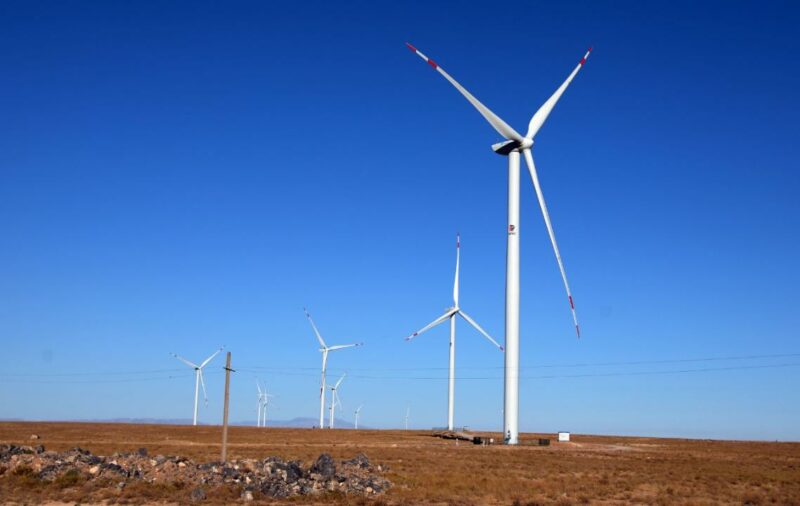By Srushti Hode
London (London Post) – Kazakhstan is emerging as a pivotal player on the global stage, transitioning from a resource-rich nation to a beacon of sustainable energy and diplomatic stability. With a strategic focus on renewable energy, a balanced foreign policy, and a commitment to inclusive growth, Kazakhstan is redefining its role in international affairs.
In an interview with Darren Spinck—Managing Partner at Washington Consulting Solutions and Associate Fellow at The Henry Jackson Society—I explored these shifts more closely. Darren, who was present at the Astana International Forum earlier this year, shared his perspectives on Kazakhstan’s renewable energy strategy, its role as a peace broker, and the ways in which cultural diplomacy and inclusive growth can shape its future.
Kazakhstan’s Renewable Energy Ambitions
Kazakhstan is making significant strides in renewable energy, aiming to diversify its energy portfolio and reduce dependence on fossil fuels. Over the past decade, the country has developed over a hundred renewable energy projects, including wind and solar power installations. Notably, a joint venture with Envision Energy is set to produce wind turbines domestically, while a UAE-backed 1 GW wind farm is expected to generate over three billion kilowatt-hours of clean electricity annually.
Darren highlighted how this commitment places Kazakhstan in an interesting position. “While the U.S. still leans heavily on fossil fuels, Kazakhstan and the U.K. are finding real common ground in renewables,” he noted, pointing to the UK’s experience in offshore wind and its willingness to invest in Kazakhstan’s green transformation. This collaboration, he suggested, could make Kazakhstan a model for regional clean energy leadership.
A Neutral Diplomatic Stance
Kazakhstan’s foreign policy is characterised by a commitment to neutrality and dialogue. A recent example of this approach is President Kassym-Jomart Tokayev’s phone call with Azerbaijan’s President Ilham Aliyev, underscoring Kazakhstan’s role as a mediator in regional affairs.
“President Tokayev has demonstrated that Kazakhstan can act as a trusted intermediary, even through modern diplomatic channels,” Darren remarked, emphasising the country’s pragmatic approach to international relations.
This diplomatic stance is complemented by Kazakhstan’s robust trade relationships and security partnerships, enhancing its credibility as a stabilising force in Central Asia.
The Case for a Trans-Caspian Development Bank
Darren proposed the establishment of a Trans-Caspian Development Bank to finance infrastructure and energy projects across the region. He argued that such an institution would not only support Kazakhstan’s renewable energy initiatives but also foster economic integration and stability among Caspian states.
“Creating a regional development bank could serve as a financial bridge between East and West, facilitating investment and promoting shared prosperity,” Darren explained.
Empowering Women and Promoting Inclusive Growth
Kazakhstan is also prioritising gender equality and inclusive economic development. In the renewable energy sector, women are increasingly taking on leadership roles, contributing to the nation’s green transformation.
Darren noted, “A society that uplifts women and youth is a society that multiplies its potential,” highlighting the importance of inclusive policies in driving sustainable development.
Harnessing the Potential of the Next Generation
Kazakhstan’s youth are actively contributing to the nation’s renewable energy agenda. At the 4th SCO Youth Innovation and Entrepreneurship Competition in China, Kazakh cleantech startups emerged as top finalists, showcasing innovative solutions in smart energy and sustainable development.
Additionally, Almaty University of Power Engineering and Telecommunications (AUPET) has been instrumental in fostering green skills among students. Its programs in renewable energy and green technologies earned a spot as a finalist in the Green Skills Award 2024, underscoring Kazakhstan’s dedication to equipping future leaders for a sustainable energy future.
These developments demonstrate the dynamic role of Kazakhstan’s youth in driving the country’s renewable energy agenda and their potential to influence global sustainability efforts.
The Astana International Forum: A Platform for Global Dialogue
he Astana International Forum has become one of the clearest expressions of Kazakhstan’s global ambitions. This year’s theme, “Connecting Minds, Shaping the Future,” captured President Tokayev’s vision of dialogue as the cornerstone of peace and progress. The Forum brought together leaders from politics, academia, and business, turning Astana into a hub of international cooperation.
Kazakhstan’s Strategic Position in Global Affairs
Kazakhstan’s strategic location and balanced foreign policy position it as a key player in global affairs. By prioritising renewable energy, fostering inclusive growth, and promoting regional stability, Kazakhstan is enhancing its influence on the world stage.
President Tokayev’s leadership reflects a commitment to sustainable development and international cooperation. His emphasis on dialogue and pragmatic diplomacy is shaping a new era for Kazakhstan, one characterised by innovation, stability, and global engagement.
Kazakhstan is proving that influence does not come only from size or power, but from trust, balance, and vision. And in that sense, the “New Kazakhstan” truly is rising.
INPS Japan


